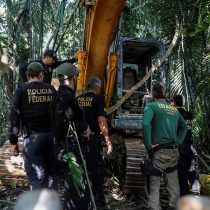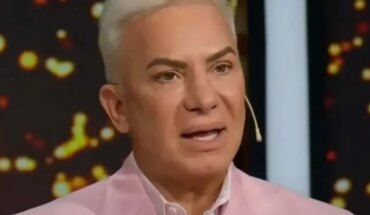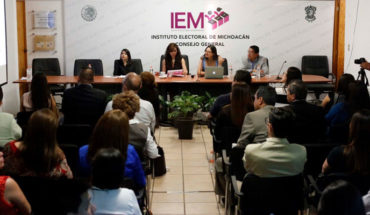
On August 9, the Intergovernmental Panel on Climate Change (IPCC) released a conclusive report with updates on the global climate emergency. In more than 3,500 pages, studies by scientists from more than 60 countries are conclusive: humanity has already entered a phase of irreversibility of the effects of climate change.
The climate emergency report
Among the points highlighted by the report, there is irrefutable evidence that the main responsibility for this situation lies with anthropic greenhouse gas emissions. This scenario is not ignored by the largest historical emitters, such as European countries, which adopted commitments and incentives for green economic recovery through the European Green Deal, the United States, after the isolation gap under Trump, and China, which included environmental damage as an indicator of risk for investments and guaranteed the neutrality of emissions until 2060.
However, there is one country that goes against the global trend: Jair Bolsonaro’s Brazil. Since assuming the presidency in January 2019, Bolsonaro has adopted several policies that have taken Brazil from a central player in the international climate change regime to paria. Bolsonaro has backtracked on his campaign promise to extinguish the Environment Ministry, but not before stripped the body of several powers and appointed Ricardo Salles to head the portfolio. As an example, for Salles, attention to the pandemic was an opportunity to “pass the buck” and ensure the relaxation of environmental policies.
Another minister, Foreign Minister Ernesto Araújo, openly criticized the Paris Agreement, has claimed that climate policies are a Marxist dogma, an example of the denialist and anti-scientific discourse propagated by bolsonarista’s support base. The replacement of both by comrades with more moderate speeches has not been enough to reverse the negative image that falls on Brazil.
In the center the Amazon
At the center of the criticism is the Amazon. Through the biological process of photosynthesis, forest areas function as central carbon absorption mechanisms. Therefore, deforestation and fires cause direct emissions, through the gases released by burning, but also indirect, due to the imbalance in the rainfall regime and humidity rates. With fewer trees, there is a territorial reduction in vectors that would absorb carbon and limit greenhouse gases.
In 2019, the National Institute for Space Research (Inpe) released data pointing to an 88% increase in illegal deforestation in the forest area compared to 2018. Bolsonaro’s reaction was to question the veracity of the data and exonerate the body’s then-director, Ricardo Galvão. The measure was accompanied by budget cuts, emptying central institutions for the monitoring and implementation of public policies in the region, such as the Brazilian Institute of Environment and Renewable Natural Resources (IBAMA) and the National Indian Foundation (Funai).
The dismantling has not gone unnoticed: European countries have interrupted the financing of the Amazon Fund. The issue has become an obstacle to the approval of the free trade agreement between Mercosur and the European Union, and several companies have announced the interruption of the import of products originating in Brazil.
Jair Bolsonaro’s policies
Under pressure, Jair Bolsonaro adopted the strategy of charging developed countries with financial support to ensure the preservation of the country’s environment. The request was made public during the Leaders’ Summit convened by Biden in April 2021.
At the heart of this argument are two main narratives that are of particular interest to the president’s support base. The first is that the environmental concerns of other countries actually hide protectionism against competitive Brazilian agricultural products. The second is a distortion of the historical principle of ‘common but differentiated responsibilities’, according to which developed countries must bear the costs of environmental policies, giving developing countries more scope to boost their own growth.
None of the narratives stand up to the “state of the art”: to ask for help, Brazil should at least do its homework. In estIn fact, Bolsonaro’s position at the Summit shocked leaders and experts for two main reasons: first, the preservation of the environment is protected and guaranteed not only by the international agreements to which Brazil is a party, but also by the Federal Constitution. In practice, Bolsonaro asked for money for something that is a legal obligation and for which there should already be a budget forecast in the short, medium and long term.
Secondly, the unusual request was accompanied by measures that go against it: the questionable commitment to end illegal deforestation by 2030 without any presentation of the mechanisms to achieve such a goal, and the revision of the baseline data of Brazil’s Nationally Determined Contribution before the Paris Agreement, a measure that, in fact, it increased the country’s emissions volume target.
In 2021, new data from Inpe complicate the scenario. A study by researcher Luciana Gatti points out that the degradation of environmental policies in Brazil has caused the Amazon to emit more carbon than it absorbs. According to the research, the area that requires the most attention is the so-called “Arch of Deforestation”, near the agricultural border.
This information helps us understand why the scenarios in the recently released IPCC report are particularly alarming for the region. Effects such as delayed rainfall cycles, drought, desertification and the commitment of agricultural crops are expected. Projections warn that the average temperature in the Amazon will increase by 2º C, above the 1.5º that the Paris Agreement establishes as a desirable maximum target. With this, the trend is that at least 150 days a year there are temperatures above 35º C in the region, which contributes to increase the speed of spread of forest fires.
The vacuum left by the Federal Government has been attempted to be filled by other actors. One is the Governors for Climate initiative, which has the support of 25 Brazilian states. Through commitments to implement policies and seek carbon neutrality, the leaders are articulating direct contacts with foreign leaders, as well as preparing their own independent delegations to participate in COP 26, in Glasgow.
The private sector has also positioned itself, placing environmental, social and governance (ESG) policies at the center of corporate strategies, guiding the market by adherence to carbon neutrality mechanisms and the commercialization of green bonds. The country’s large companies have also demonstrated against the government’s environmental policy that causes economic losses due to boycotts and restrictions by other countries on Brazilian products.
In two years of government, the green of nature has not sensitized the government. Maybe the green of money will.
www.latinoamerica21.com, a pluralistic medium committed to the dissemination of critical and truthful information about Latin America.
Marianna Albuquerque holds a PhD in Political Science from the Institute of Social and Political Studies of the State University of Rio de Janeiro (Iesp-Uerj), is coordinator of the South American Political Observatory and a consultant to the Brazil Climate Center.
The content of this opinion column is the sole responsibility of its author, and does not necessarily reflect the editorial line or position of El Mostrador.





